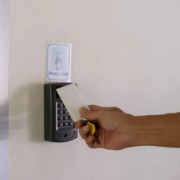In the ever-evolving world of cryptocurrencies, staying ahead of the game is crucial to ensuring the safety and growth of your digital assets. With the increasing popularity of blockchain networks, validators have emerged as vital components in maintaining the integrity of these decentralized systems. In this article, we will delve into the fascinating realm of validator monitoring, shedding light on their importance, how to monitor them effectively, and the steps you can take to secure your valuable assets.
Understanding Crypto Validators
What Are Crypto Validators?
Crypto validators are essential participants in proof-of-stake (PoS) and delegated proof-of-stake (DPoS) blockchain networks. They play a pivotal role in verifying and validating transactions on these networks, contributing to the overall security and decentralization of the ecosystem.
These validators are responsible for confirming the legitimacy of transactions and blocks, ensuring that they adhere to the network’s consensus rules. In return for their services, validators receive rewards in the form of native cryptocurrency tokens, making it an attractive avenue for crypto enthusiasts to earn passive income.
The Significance of Validators
Validators are the backbone of PoS and DPoS networks. Their proper functioning ensures the network’s stability and security. By participating in the validation process, you contribute to the decentralized nature of the blockchain, making it resistant to censorship and fraud.
Moreover, validators help prevent attacks like double-spending, where a user spends the same cryptocurrency units more than once. This security feature is fundamental to gaining trust and wider adoption in the crypto space.

Monitoring and Securing Your Assets
Monitoring Your Validators
Monitoring your validators is essential to ensure they are performing optimally. Several tools and platforms are available that allow you to track the status of your validators, including their uptime, performance, and potential issues. Regularly checking these metrics will help you identify and address any problems promptly, minimizing the risk of lost rewards.
Securing Your Assets
Securing your assets goes hand in hand with monitoring your validators. Consider these crucial steps to protect your investments:
1. Choose Reputable Validators
Select validators with a proven track record of reliability and security. Research their history, performance, and reputation within the crypto community before delegating your assets to them.
2. Diversify Your Delegations
Avoid centralization by diversifying your delegations among multiple validators. This strategy reduces the risk associated with a single validator’s failure or malicious behavior.
3. Stay Informed
Keep yourself informed about the latest developments in the crypto space. Join forums, follow news outlets, and participate in online communities to stay updated on potential threats or vulnerabilities that may affect your assets.
4. Use a Hardware Wallet
Consider storing your assets in a hardware wallet for added security. Hardware wallets are offline devices that protect your crypto holdings from online threats like hacking and phishing attacks.
Conclusion
Crypto validators are the unsung heroes of blockchain networks, ensuring their integrity and security. By understanding their role, monitoring their performance, and taking proactive steps to secure your assets, you can navigate the crypto landscape with confidence. Remember that vigilance and informed decision-making are your best allies in the world of crypto investments. With the right strategies in place, you can safeguard your assets and embark on a journey toward financial prosperity in the exciting world of cryptocurrencies.












Comments